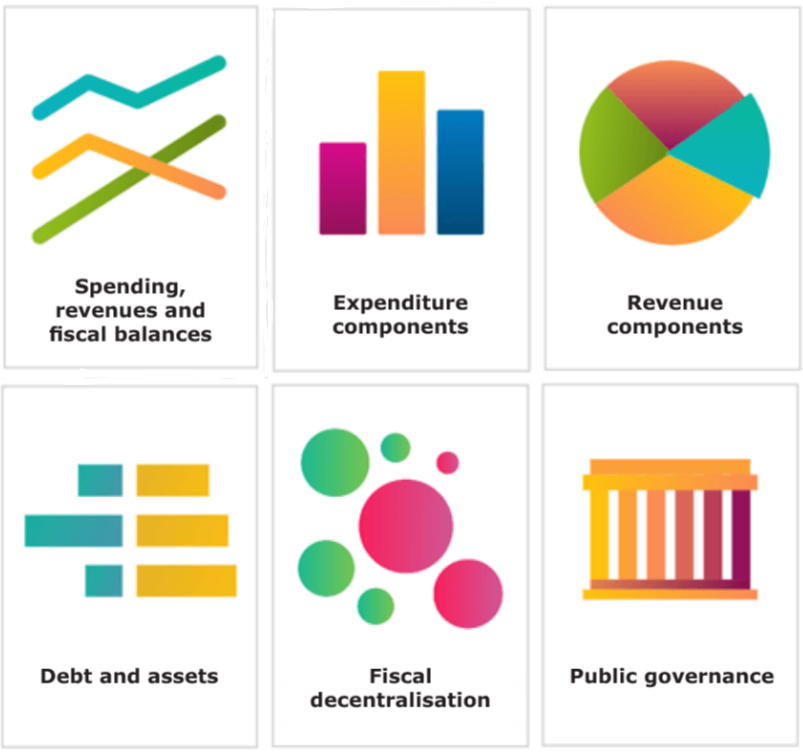Economy

OECD Economic Outlook 2022
The global economy is facing mounting challenges. Growth has lost momentum, high inflation is proving persistent, confidence has weakened, and uncertainty is high. Russia’s war of aggression against Ukraine has pushed up prices substantially, especially for energy, adding to inflationary pressures at a time when the cost of living was already rising rapidly around the world.
©Karabin/Shutterstock
Read the report
Greece Economic Survey 2023
Greece has rebounded well from the COVID-19 crisis, generating strong employment growth. Increasing investments and exports, government support measures, implementation of the Greece 2.0 Recovery and Resilience Package and the reforms of the past decade have been supporting the economy. However, headwinds from surging energy prices and uncertainty following Russia’s war of aggression against Ukraine have slowed the recovery.
© VivoooS/Shutterstock
Greece Economic SnapshotRecently released
- Energy expenditures have surged, posing challenges for policymakers, 20/01/2023
- Economic Survey of Greece, 10/01/2023
- Economic Survey of Finland, 15/12
- Economic Survey of Ireland, 14/12
- Different paths to net-zero: Assessing the effectiveness of diverse climate mitigation approaches, 22/12
- Laying the foundations for strong, sustainable growth in Finland, 22/12
- Call for Papers: Post-COVID Labour Supply Constraints And Opportunities: New Considerations For Labour Market Policies, by 15 January
- Securing the health of Ireland’s future, 14/12
- Quantitative tightening: another driver of higher interest rates?, 12/12

Finland Economic Survey 2022
Russia’s war of aggression against Ukraine has darkened the short-term economic outlook for Finland and increased the urgency of transitioning away from fossil energy. The Finnish economy is likely to contract over coming quarters, weighed down by high inflation, tightening monetary conditions and curtailment of Russian gas supplies to trading partner economies, but to recover in 2024 as these headwinds pass.
© Vincent Koen
Finland Economic Snapshot
Ireland Economic Survey 2022
The Irish economy weathered the COVID-19 pandemic and is coping well with the repercussions from Russia’s war of aggression against Ukraine. While the fiscal position is currently strong, with buoyant revenues, a number of pressures arising from ageing, housing, health, and climate change create fiscal risks in the longer term.
© Vincent Koen
Ireland Economic Snapshot
Call for Papers: Post-COVID Labour Supply Constraints And Opportunities: New Considerations For Labour Market Policies
Please submit papers by 15 January 2023 | 4th Joint IMF-OECD-World Bank Conference on Structural Reforms
©Shutterstock/metamorworks
More infoBy Topic
- Economic Outlook, analysis and forecasts
- Economic Country Surveys and Country Surveillance
- Economic Policy Reforms: Going for Growth
- Finance and inclusive growth
- Climate Change: International Attitudes toward Climate Policies
- Environment: Reducing emissions without hurting jobs or companies' financial performance
- Human Capital
- Income redistribution
- Productivity and long term growth
- Public Finance
- Economic policies to foster green growth
- Productivity and wages
- Digitalisation, Productivity and Inclusiveness
- Regulatory reform and competition policy
- Resilience in a time of high debt
- Scenarios for the world economy to 2060
- Trade: How to make trade work for all
- Trade and financial integration
- G20 Contributions: Strong, Sustainable, Balanced and Inclusive Growth
COVID-19 and the global economy: Macroeconomic and structural policy issues
- The role of online platforms in weathering the COVID-19 shock
- Walking the tightrope: exiting the lockdown while containing the virus
- Insolvency and debt overhang following the COVID-19 outbreak: Assessment of risks and policy responses
- Financial fragilities in COVID-19 time: assessment and policy answers
- Productivity gains from teleworking in the post COVID-19 era : How can public policies make it happen?
- Housing amid Covid-19: Policy responses and challenges
- COVID – 19 and the low-carbon transition: Impacts and possible policy responses
- The COVID-19 crisis and state ownership in the economy: Issues and policy considerations
- Evaluating the impact of COVID-19 containment measures on activity and spending
- Assessment of government crisis programmes to support businesses
- Distributional risks associated with non-standard work: Stylised facts and policy considerations
- Flattening the unemployment curve? Policies to support workers’ income and promote a speedy labour market recovery
COVID-19 Country Policy Response Tracker
By Content Type
- Policy Papers, Overview of evidence & policy lessons
- Working Papers, In depth analysis
- Blogs
- Public Finance Data Portal
- Data: Indicators of Product Market Regulation
- Data: House Prices
- Data: Structural Policy Indicators Database for Economic Research (SPIDER)
- Data: Resilience: Vulnerability Indicators
- Data: OECD Weekly Tracker of GDP Growth
- Data: COVID-19 Country Policy Tracker
Public Finance Data Portal
This portal provides data and documents from the OECD and external sources to facilitate public finance research.
Global Forum on Productivity
The OECD Global Forum on Productivity (GFP) fosters international co-operation between public bodies promoting productivity-enhancing policies. Access the latest research and data on productivity trends and institutions, and follow upcoming events.
Indicators of Product Market Regulation
Pro-competition regulation in the markets for goods and services can help boost living standards, can raise output per capita by increasing investment and employment, and can encourage firms to be more innovative and efficient, thereby lifting productivity. To measure countries’ regulatory stance and to track reform progress over time, since 1998 the OECD has been producing a set of indicators of product market regulation (PMR). This set included an economy-wide indicator and a group of indicators that measures regulation at the sector level.


